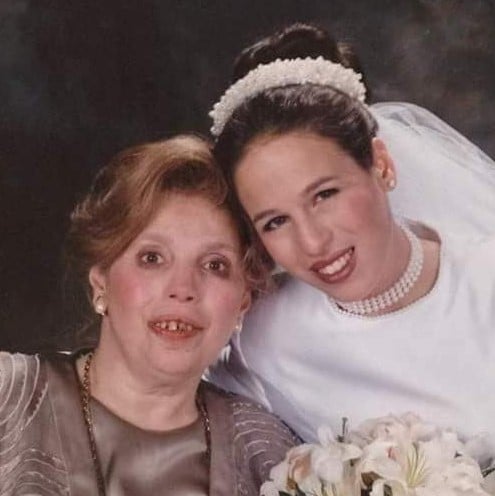This month, the Community Spotlights will introduce you to individuals who are exploring the idea that “no one is more welcome here than you” – a project of the Center for Jewish Engagement and Learning (CJEL).
My mother, Esther Malka Levinson 1940- 2005 was an ordinary human being like you and me until she was stricken with a severe case of polio that crippled her body from neck to toe. She was confined for many years, first in the iron lung and then in a sanatorium because there was no space in the hospitals for children with a fatal prognosis.
Her mantras:
“Each of us has a mission in life! G-d gives us exactly what we need to fulfill that purpose – in every situation, through every trial.
“If after 13 surgeries my legs are still paralyzed, I don’t need to walk to fulfill my life’s purpose.”
My mom’s life is a story of inspiration, determination and optimism.
Below is a section that I translated from an article she wrote in Yiddish.
We are not complete until we all belong
It is okay to feel nervous or uncomfortable around me and others with disabilities, and it is okay to acknowledge that. It is human to feel that way at first. When you encounter these situations, think “person” first instead of disability.
G-d didn’t create us as disabled people and normal people. We are all people with different abilities. Judaism demands that we regard every person with the respect and dignity of Betzelem Elokim (the idea that we are created in the image of G-d), regardless of their physical, intellectual, emotional, or spiritual ability.
Ask questions, then listen to the person with the disability. Do not make assumptions about what that person can or cannot do. We aren’t your chessed (charity) projects. Plan *with* us not *for* us.
When speaking with a person with a disability, talk directly to that person, not through his or her companion. This applies whether the person has a mobility impairment, a mental impairment, is blind, or is deaf.
Extend common courtesies to people with disabilities as you would anyone else. Shake hands or hand over business cards. If the person cannot shake your hand or grasp your card, they will tell you. Do not be ashamed of your attempt, however, when a guide dog is working, do not pet or play with them as it will distract them from the work they are doing.
If a person has a speech disability and you are having trouble understanding what he or she is saying, ask the person to repeat rather than pretend you understand. The former is respectful and leads to accurate communication. The latter is belittling and leads to embarrassment.
Offer assistance to a person with a disability, but wait until your offer is accepted before you help.
Treat the person with a disability the way you want to be treated.
We are grateful to Brocha Leah Greenberg for sharing with us her mother’s words and are honored to feature her in this week’s My Jewish Buffalo.

